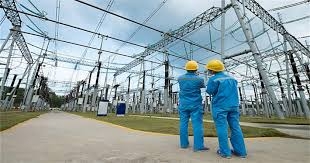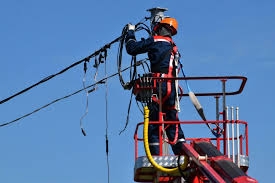7 Key Responsibilities of an Electrical Power Engineer

Electricity powers everything in the modern world — from homes and offices to large industrial plants. At the heart of this system is the Electrical Power Engineer, the expert who ensures that power is generated, transmitted, and used efficiently and safely.
What Is an Electrical Power Engineer?
An electrical power engineer is a professional who works with power generation, transmission, and distribution systems. They help design, test, and maintain equipment that produces and delivers electricity to homes, businesses, and industries.

What Does an Electrical Power Engineer Do?
Electrical power engineers have many important duties. They make sure electricity flows properly from power stations to the final user.
Key Responsibilities:
-
Design and test electrical power systems
-
Oversee power transmission and distribution lines
-
Install and maintain equipment like transformers and generators
-
Solve power outages and electrical faults
-
Improve energy efficiency and reduce power loss
-
Ensure all systems meet safety regulations
-
Support renewable energy integration like solar and wind
Where Do Electrical Power Engineers Work?
They are needed in a wide range of sectors, including:
-
Power Plants – Managing generation systems like turbines and generators
-
Grid Stations – Monitoring and maintaining transmission systems
-
Construction – Designing electrical layouts for buildings
-
Renewable Energy Firms – Installing and managing solar or wind systems
-
Industrial Zones – Ensuring constant and stable electricity flow in factories
Important Skills for Electrical Power Engineers
Technical Skills:
-
Power system design
-
Grid load calculation
-
Simulation software (e.g., MATLAB, ETAP)
-
Transformer and switchgear knowledge
-
Solar and renewable system setup
Soft Skills:
-
Critical thinking
-
Technical report writing
-
Safety awareness
-
Communication and teamwork
-
Project management
Role in Renewable Energy
Electrical power engineers play a big role in supporting clean energy:
-
Install solar panels, wind turbines, and hybrid systems
-
Connect renewable sources to the main grid
-
Improve system performance and backup reliability
-
Make energy systems greener and more efficient
How to Become an Electrical Power Engineer
Follow these steps to start your career:
-
Get a Bachelor’s degree in Electrical or Power Engineering
-
Do internships at power plants or energy companies
-
Learn software tools like MATLAB, AutoCAD, and ETAP
-
Gain field experience in installation or maintenance
-
Apply for junior positions and grow with certifications

FAQs
What is the job of an electrical power engineer?
They work with systems that generate, transmit, and distribute electricity, making sure it’s delivered safely and reliably.
Do electrical power engineers work in solar energy?
Yes. They help design, install, and manage solar power systems and integrate them with traditional grids.
What’s the difference between electrical engineers and power engineers?
All power engineers are electrical engineers, but not all electrical engineers specialize in power systems. Power engineers focus mainly on energy flow and infrastructure.
What tools do they use?
They use software like MATLAB, AutoCAD, ETAP, and physical tools for system testing and diagnostics.
For more information visit my linkedin profilehttps://www.linkedin.com/in/abbas-imran-/
📩 Contact Information
Abbas Imran
📱 +92 317 5766766
📧 abbasimrankashaf@gmail.com
- Questions and Answers
- Opinion
- Motivational and Inspiring Story
- Technology
- Live and Let live
- Focus
- Geopolitics
- Military-Arms/Equipment
- Sécurité
- Economy
- Beasts of Nations
- Machine Tools-The “Mother Industry”
- Art
- Causes
- Crafts
- Dance
- Drinks
- Film/Movie
- Fitness
- Food
- Jeux
- Gardening
- Health
- Domicile
- Literature
- Music
- Networking
- Autre
- Party
- Religion
- Shopping
- Sports
- Theater
- Health and Wellness
- News
- Culture

